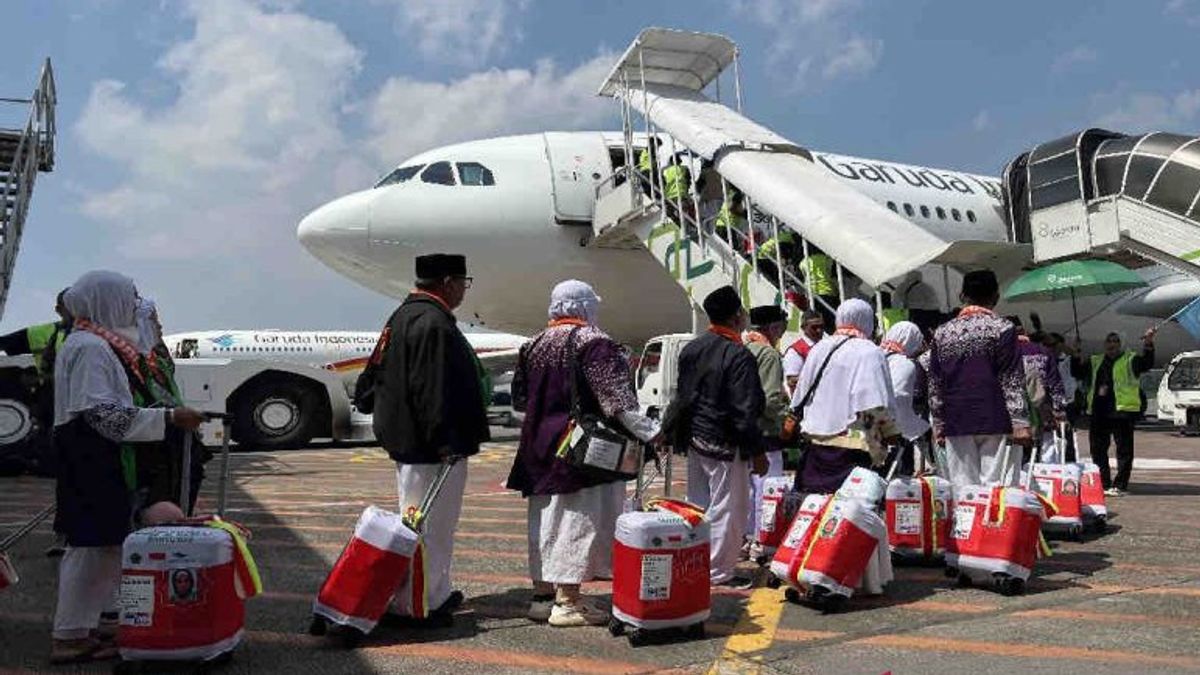Minister of Religion (Menag) Yaqut Cholil Qoumas explained a number of indicators of the success of organizing the Hajj 1445 Hijri/2024 AD. He assessed that the implementation of the 2024 Hajj pilgrimage was better than in previous years.
"It's not too much, if you call the 2024 Hajj a success and much better than the previous years. There are a number of indicators and we formulate them," said the Minister of Religion when closing Hajj operations at Pondok Gede Hajj Dormitory, Jakarta, Thursday, July 25, which was confiscated by Antara.
Yaqut explained that there are four latest formulations, three developments in the Hajj economic potential ecosystem, and five innovations during the 2024 Hajj pilgrimage.
For the four latest formulations for organizing the pilgrimage, namely first, fast track services are applied to three embarkations.
Apart from Soekarno-Hatta Airport, also in Adi Soemarmo Solo and Djuanda Surabaya. Starting this year, 127,073 Indonesian Hajj (more than 50 percent) have experienced the comfort of fast tracks services.
Second, catering services are fully provided as long as the congregation is in Makkah. A total of 17,492,983 boxes were distributed and enjoyed by worshipers during pre-Armuzna and post-Armuzna.
"This does not include more than five million catering boxes prepared in Medina, nor does it include congregational consumption services during the peak of the Hajj in Armuzna," he said.
Third, Indonesia received an additional quota of up to 20,000 people and became the first in the history of organizing the hajj. This addition is part of a lobbying effort carried out by President Joko Widodo to King Salman and Prince Muhammad bin Salman.
Fourth, the Murur scheme managed to suppress congestion during mabit (night) in Muzdalifah, so that last year's case did not happen again.
"Around 51,899 people registered underwent this scheme, although in its realization more than that. At 07.37 Saudi Arabia time (WAS), pilgrims in Muzdalifah had already departed for Mina. In fact, in 2023 with fewer congregations, the congregation mobilization process lasted until 13.30 WAS," he said.
For the three developments in the Hajj economic potential ecosystem, first, the export of Nusantara spices, which amounted to 70 tons or greater than last year, which was only 16 tons.
"The potential for the future is still wide open, because the need reaches 300 tons," he said.
SEE ALSO:
Second, the delivery of meat and officers and pilgrims in the form of processed meat packaging. This year, PPIH managed to manage 6,755 goats and officers and pilgrims.
Third, this year Indonesia will start using ready-to-eat food in congregational catering services. The food is imported from Indonesia. In total there are around 1.7 million boxes distributed this year in Makkah and during the peak of Hajj in Armuzna.
The five Hajj innovations include digital transformation in the recruitment of officers, the Kawal Haji application provides space for the congregation and the families of the congregation to submit complaints and complaints if they experience problems.
Safari wusuf elderly non-independent and disabled with more mature preparation, the use of IPS (International Patient Summary) or a medical history on hajj pilgrims cards.
Finally, the simplification of the visa delay/batal process to optimize the use of the hajj quota. Pilgrims whose visas have been issued, but because something is canceled/delayed, are included by the Kab/Kota Kankemenag team to Siskohat. Thus, the Regional Office of the Provincial Ministry of Religion and the central Ministry of Religion can immediately cancel and apply for a replacement visa.
"This approach has succeeded in optimizing the absorption of the hajj quota, this year there are only 45 quotas left," he said.
The English, Chinese, Japanese, Arabic, and French versions are automatically generated by the AI. So there may still be inaccuracies in translating, please always see Indonesian as our main language. (system supported by DigitalSiber.id)

















